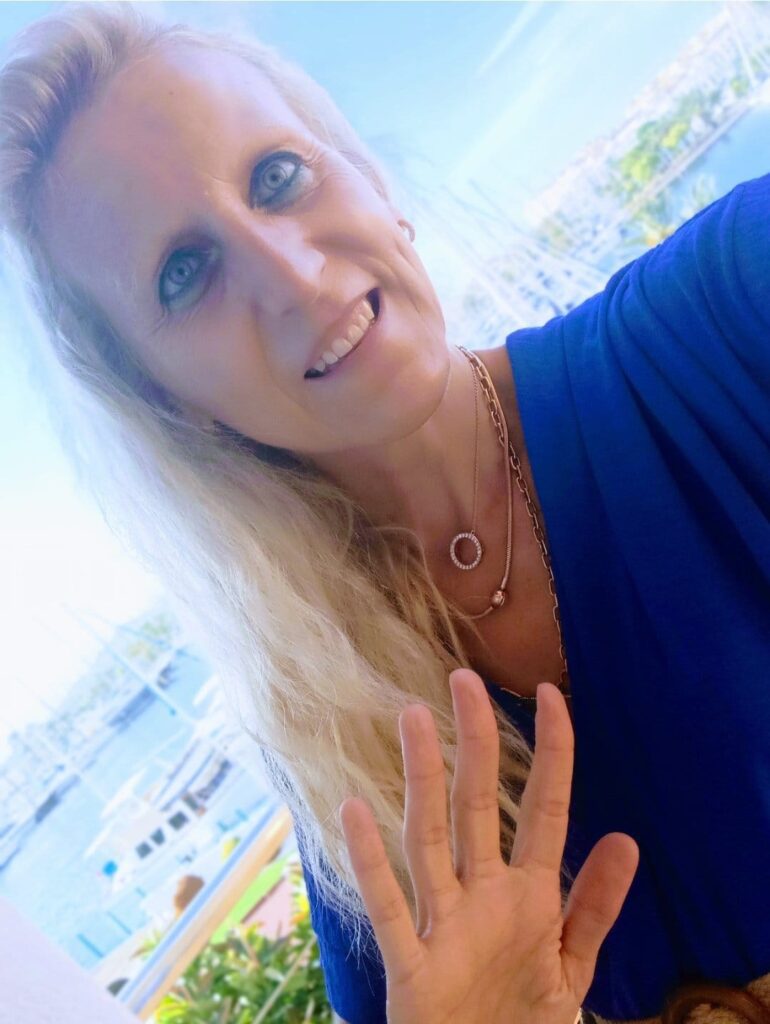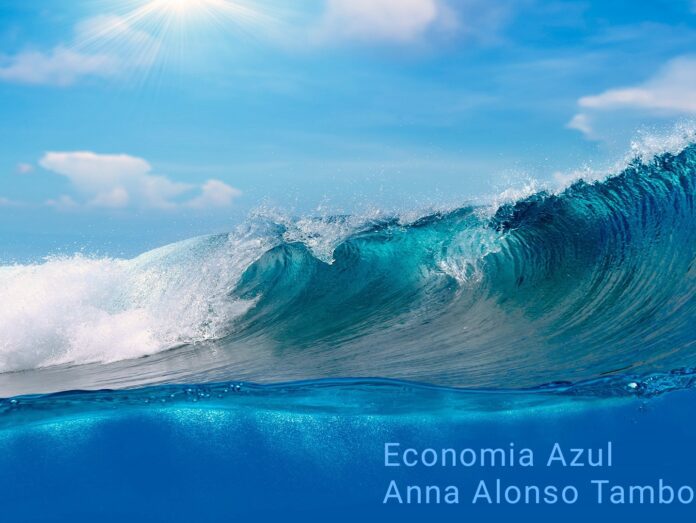2024, a year bluer than ever! Where is the Blue Economy navigating?
This year we encounter some events that will mark the calendar and dress it in blue. They are the Paris Olympics, the first sporting event of global interest with the most spectators; and the America’s Cup Barcelona, third sporting event behind the Soccer World Cup. Barcelona will also be the axis of the Blue Economy in the month of April, it has been chosen by UNESCO to host the 2024 Ocean Decade Confrence. Among one of the stages is the renovated Olympic Port of Barcelona, which is preparing to host the America’s Cup.
We are blue, we are ocean. The Blue Economy as a driving force
71% of the planet’s surface is covered by water, the remaining 29% by continental mass. Oceans cover ¾ of the Earth’s surface. Their importance is crucial for the survival of the planet’s biota, they regulate the climate, absorb a large amount of carbon dioxide from the atmosphere by 30%, provide much of the oxygen we breathe and the food we consume. The oceans They are our blue lung . Almost 7.5% of the oceans are protected. We are ocean .
At COP28, on December 9, 2023, held in Dubai, the oceans are conceived as an engine of growth . The Blue Economy appeared 10 years ago, and is expected to double to reach $3 trillion in 2030. If the Blue Economy were comparable to a national economy, it would be the seventh largest economy in the world and would be a member of the G7. Faced with a lack of regulation and threats, the oceans concentrate the GDP of 2.5 trillion dollars.
The acceleration of marine uses has caused the loss of 50% of marine biodiversity, a disappearance of 30% of coral and 35% of underwater places. Between 9 and 11 metric tons of plastics are dumped into the sea each year, promoting 60-80% of marine litter, mostly in the form of microplastics. If we talk about the Mediterranean in particular, it contains 84,800 microplastics per square kilometer in its surface waters. The Mediterranean Sea is a closed sea that warms rapidly and becomes tropicalized 20% more than the world average. It is a great asset for the Blue Economy, generating 450,000 million euros annually.
But we may just be surprised by the inestimable figure of 25,000 tons of sunscreen that ends up in the oceans every year, that is, one liter per second, for example. The blue ocean is getting grayer.
By the end of the decade, the Blue Economy is estimated to generate 40 million jobs, with an estimated value of $24 trillion. The OECD estimates that the volume of marine trade will triple between now and 2050.
According to the latest 2019 Blue Economy Report of the European Union, in its fifth edition, Europe analyzes its maritime strategy. Advocates for sustainable development of oceans and coastal resources. It follows the European Green Deal together with climate change and circular economy policies , which will be the ones that will mark sustainable development with zero emissions in 2050.
no Blue Economy without green. For it2.5 billion euros will be allocated to promote offshore wind farms, the conservation of marine ecosystems, sustainable food production based on the sea and the promotion of decarbonization of the maritime sector. It is clear that the Blue Economy represented 1.5% of the GDP of all the EU countries, about 14.5 billion euros, generated 2.3% employment of the 27 members, 4.5 million jobs. direct jobs, 650,000 million in business volume and a gross added value of 500,000 million euros annually.
Here in Spain, the Blue Economy is among the Top Ten in Europe. We can place it as one of the main European powers in this sense. Words from the president of the Spanish Maritime Cluster, Javier Garat, at the 11th ANEN Nautical Congress, held in Bilbao on March 7 and 8, 2024. He gives us concrete figures such as the second European economy, billing 15.0% , the one that contributes the most to the added value by 18% (30,000 million euros), the employment of the sector is 23% (930,000 employed), it is 7% of the GVA and represents 7% of workplaces nationwide . The Blue Economy is an economic engine characterized by its versatility and dynamism.
The Blue Economy is a recent concept
The father of the Blue Economy is Gunter Pauli (Antwerp, 1956), Belgian economist and member of the Club of Rome – (“ Manifesto on the limits of growth ” of 1972). We can call him the Steve Jobs of the Blue Economy . The idea dates back to 1994, and he formulated it in his 2010 book, “ The Blue Economy.” 10 years, 100 innovations, 100 million jobs .” The Blue Economy focuses on the seas and ocean ecosystems as an economic source, giving them added value. It is combined with the circular economy , based on the use of resources; and in the green economy , which maximizes environmental protection. A proposal very similar to the founder of modern economics Adam Smith, seeking the optimization, distribution and use of resources as a strategic axis. Thus, we went from a traditional linear economy conception to a cyclical and regenerative conception emulating nature.
Green policies lead us to blue
The Blue Economy has close precedents at the political level where its green bases are based, and France is at the forefront as the promoter of these green policies, the seed of the blue.
This year 2024 marks 50 years since French President Georges Pompidou left us. We stop at the date of February 28, 1970, in his famous speech in Chicago, on the problems of the natural environment and the human action of man that threatens it. Pompidou sounds the environmental alarm, “ man’s dominance over nature has become such that it carries the risk of destruction of nature itself (..) A fragile framework that must be protected so that the Earth is habitable for the man “. It is a very visionary approach to ecology, but so far from current dogmatic environmentalism.
It was at this time, when the first Ministry of Environment and Nature Protection appeared, in 1971 with Robert Poujade at the helm. And, the first Environmental Law of 1976 ( Law, number 96-663, of July 19, 1976).
Following the thread of the French presidents as precursors, we find the statement of President Jacques Chirac. It was at the Paris Conference, on February 2, 1972, that he predicted a global environmental governance that would mark the politics of the 21st century: “A new era (…) where the most innovative and environmentally friendly economies will be the most powerful economies.” ”. Along with a “ humanistic ecology (…) involves educating everyone, especially the youngest, about environmental issues .”
Remember, France was the first country to attach an Environmental Charter to its Constitution, and inspired the UN and States to include ecological concern in their fundamental texts. Jacques Chirac created ecological awareness worldwide.
But this ecological policy has reached France to this day, and it is not by chance. Emmanuel Macron promised in the second round of the 2022 elections to make France an energy power, on the one hand; and an ecological power, on the other : “ The policy I will make in the next five years will be ecological or it will not be .” Ecology and climate change, in his speech in Marseille on April 16, occupied practically the entirety of his rally, but without going to the much feared decrease: “ Our objective is to make a more ecological economy (…) The great leaders of the century XXI will be green leaders, eco-responsible ,” he added. Macron’s concern also focused on reversing the eco-anxiety, eco-fear or eco-guilt that disturbs young people, and transforming it into ambition : “ we must manage to convert this ecological anxiety into ambition and action.”
But to this France that promotes the green economy as the promoter of the Blue Economy, we must also show concern. In May 2022, the French government replaced the Ministry of the Sea, created in 2020, with a Secretariat of State, disabling it. The Blue Economy is colored by green ecological policy, and this being France one of the world’s leading maritime powers. But within this scenario, we are left with the UN Lisbon Declaration of 2022, and its basic principle: “ Our ocean, our future, our responsibility.”

Ràdio presenter in Arran de Mar: “Pensant en blau”, of La Xarxa d’Audiovisual Local de Mar






